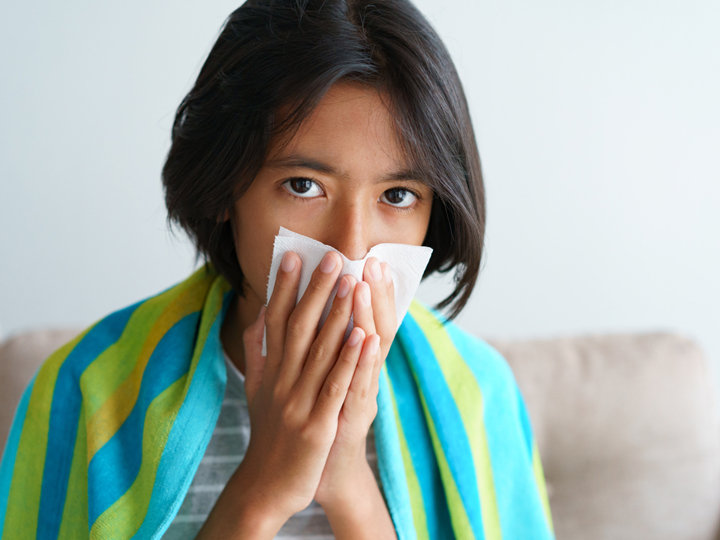Stopping germs from spreading
- 0-1 Years
- 1-5 Years
- 5-11 Years
- 11-19 Years
- SEND
- Common illnesses

Some minor illnesses such as coughs, colds and tummy upsets can be easily spread. But there are some simple things that you can do to reduce the risk of this happening.
Explore the topics on this page:
Handwashing
Washing your hands is one of the simplest ways to avoid spreading and catching viruses. For example, the common cold and flu. You don't need to wash your hands for long, around 20 seconds. It's about the length of time it would take to sing happy birthday twice.
Handwashing top tips:
- Wash your hands properly using warm water and soap. Wash your hands properly after going to the toilet, changing a nappy, or handling rubbish. You should also wash your hands before you eat or prepare food for yourself or anyone else.
- Always wash your hands after going to the toilet, changing a nappy, handling rubbish, touching animals and before you prepare and eat food.
- Use a tissue when you sneeze, cough or blow your nose. Wash your hands properly afterwards.
- Try to get into the habit of washing your baby or young child’s hands regularly, especially before they eat.
- As soon as your child is old enough, teach them to wash their hands properly themselves. There are lots of fun ways to help them to enjoy doing this. You could try making up songs to sing, making bubbles with the soap, or making splashing sounds in the water.
Read our information on hygiene for more handwashing advice.
Washing clothes and towels
Clothes and towels can spread germs. Washing clothes on a normal washing cycle will reduce the risk of transmitting germs. But some items may be more likely to cause illness. Wash these at the highest possible temperature recommended on the label. High risk items include:
- shared towels
- sports clothes
- clothes soiled with vomit or poo
Protect yourself by wearing gloves when washing these sorts of items. Remember to wash your hands afterwards.
Last reviewed: 1 November, 2023
